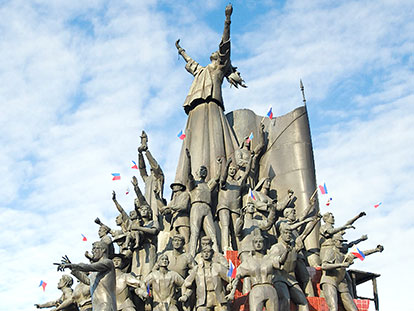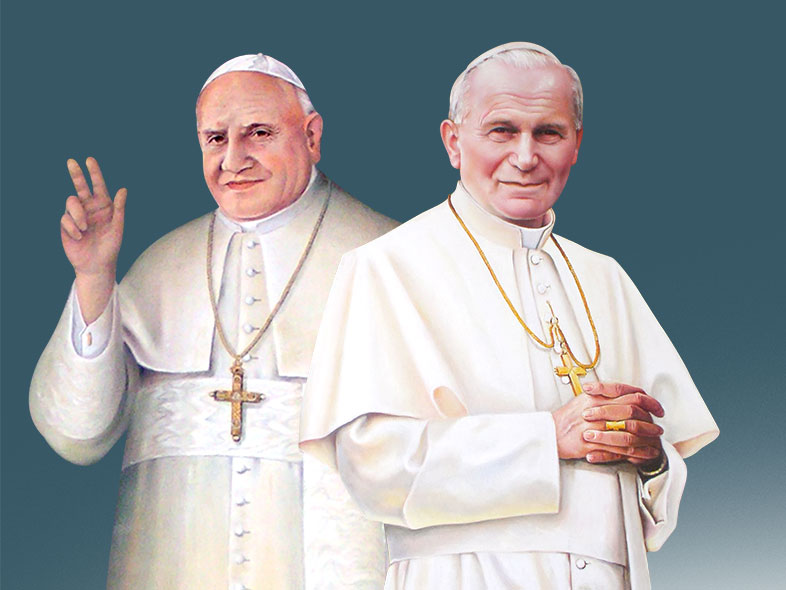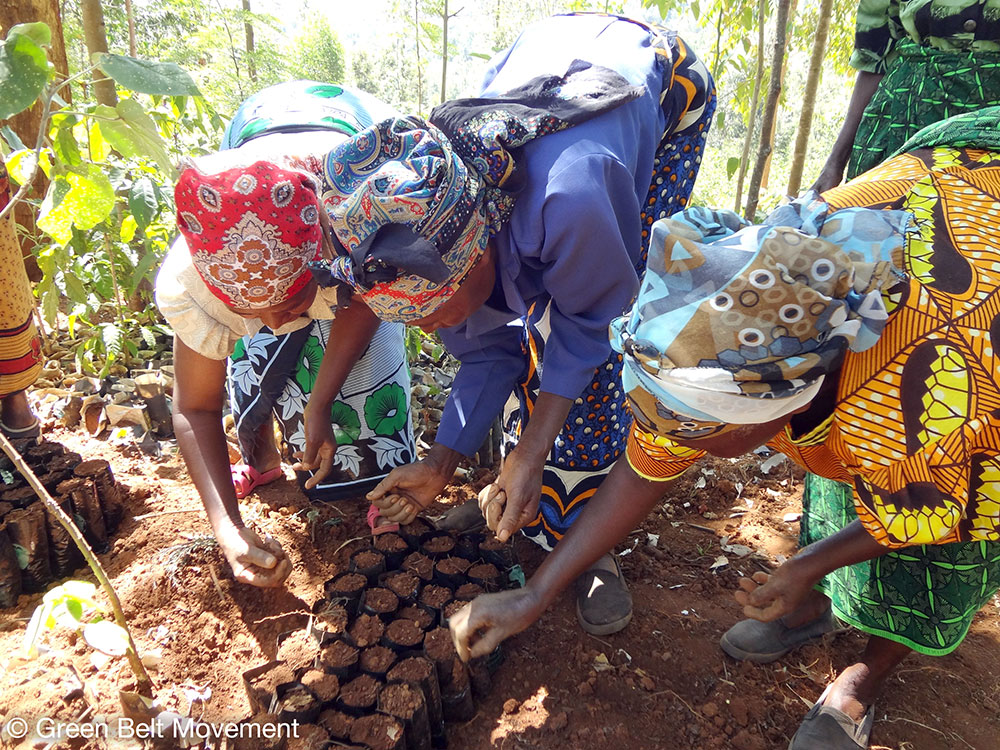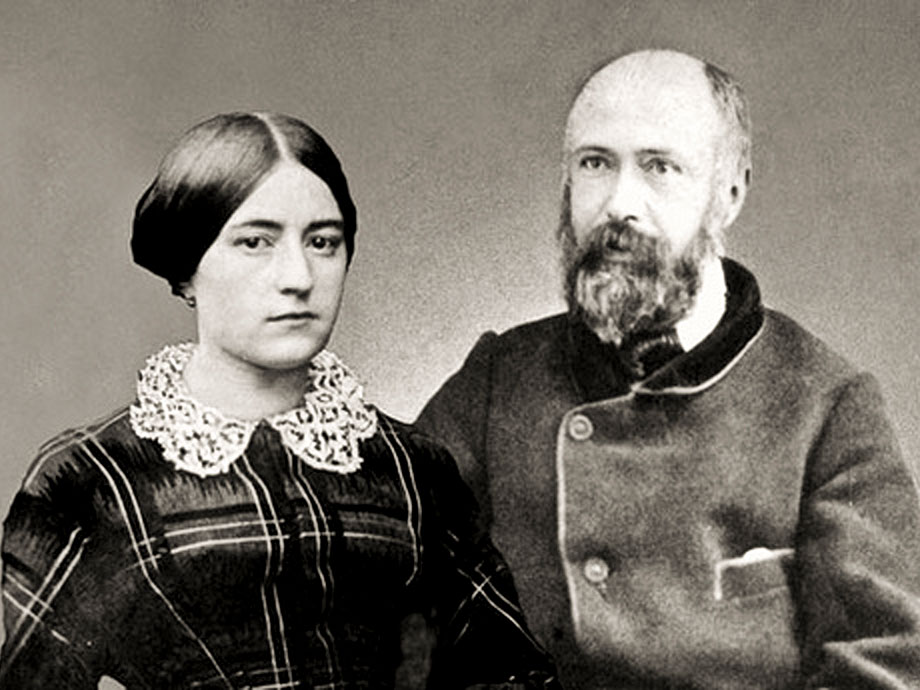The second part of the XIX century saw a massive emigration of poor people from the countries of Europe to America and Australia. Millions left their homeland and faced the unknown in search of land and livelihood. Scattered over immense territories, they suffered isolation and the lack of facilities essential for their lives and the healthy development of their children. On their wake, went an army of religious men and women: they built schools and hospitals in the remotest areas and were often the only hope of the pioneers. Some years ago, I was in Denver, Colorado, guest of a large school of the Loreto Sisters. I remember praying the rosary in the cemetery where rows of dozens of white tombstones spoke of the sacrifice of the many consecrated young women of the frontier, courageous companions of the millions of poor Catholics who tamed the Far West.
Convicts were the first to settle Australia. They were followed by hundreds of thousands of poor people coming from different nations. Convicts didn’t seem particularly impressed with the champions of Christianity. When Governor King ordered that they attend Church on Sundays, they responded by burning the church to the ground. Similarly, many convicts had tattooed onto their backs images of crucifixes or angels holding cups of blood. This gave the impression that when they were being flogged, Christ Himself was being flogged.
The convicts were obviously good judges of character as some of Church personnel had acted in a manner that ran contrary to Christianity’s message. However, not all Christian missionaries were bad people. One shining light was Sr. Mary MacKillop. Like Jesus Himself, Mary was a troublemaker. She worked tirelessly for the poor since her early youth when she realized the plight of the immigrant children who were abandoned without education. For them, she became the Founder of the Sisters of Saint Joseph at the early age of 24 and paid for her single-minded commitment to the most isolated of them with the opposition of the Church authorities.
Mary MacKillop was considered to be a woman ahead of her time for many reasons. First, in Australia, she wanted her Sisters to be under the government of a Sister superior-general who would be free to send them wherever there was a need. She wanted her Sisters to live as the poor did, in small communities of two or three members, and in houses that were poor like those of the people. She encouraged the Sisters to live in isolated places where Mass and the Sacraments may have been available to them infrequently. She saw all persons as being equal before God, regardless of social status, religion, race or age. Finally, she had a vision for the whole of Australia when it was still a country of individual colonies.
Early life history
Mary MacKillop was born in Melbourne – a city that by then was only seven years of existence – of immigrant parents from Scotland. Living arrangements were primitive. Mary’s parents had arrived separately but had known each other in Scotland. Mary was born to Alexander and Flora MacKillop on January 15, 1842, the first of eight children. Her father was unable to stay in stable employment so the circumstances of the family were constantly changing. They often depended on relatives for a home and the means to live.
At an early age, Mary went out to work, first in a stationery store and later as a teacher and then as a governess. She was a fine horsewoman, loved nature and had a great affection for her family. When Mary was a governess in the southeast of South Australia, she noted that there was little or no education for rural children and especially for Catholic children. She had a dream of becoming a Sister but had to put that dream aside to help support her family.
While she was a governess, she met the charismatic young priest, Father Julian Tennyson Woods, whose parish was very large, almost the size of England. He shared Mary’s dream and encouraged her. When she was 24 years old, she believed that she was free at last to follow her dream. She did not want to join any of the few religious congregations already present in Australia as their work was mainly confined to the cities. In 1866, she and her sister, Lexie, opened the first school in a disused stable in Penola and so the congregation of the Sisters of St. Joseph was born.
Mary was advised to move to Adelaide, where the new congregation expanded and soon spread to other colonies and to New Zealand. The Sisters begged for their support and only asked parents for any payment they could afford. Many could not pay anything. Soon, Mary established homes for unmarried pregnant girls, for women coming out of jail and for destitute elderly. In almost no time, Mary had attracted scores of young women to her congregation, and houses were established in a number of cities and outback missions throughout the territory. At a time when almost no public services were available for the poor, the Sister of Saint Joseph won the admiration and gratitude of the Australians of all classes and religious persuasions. Generally, the Sisters were prepared to follow farmers, railway workers and miners into the isolated outback and live as they lived. They shared the same hardships whilst educating their children.
Excommunicated
An unusual event then happened in her life: Mary MacKillop was excommunicated, on September 22, 1871 by Bishop Laurence Sheil of Adelaide. On that occasion, she and 47 Sisters were also expelled from the Congregation of St Joseph and forced to find accommodation and employment wherever they could. During this time, Mary dressed incognito. She had been ordered not to communicate with any of the Sisters and anyone associating with her was liable to excommunication. Priests, too, were threatened with suspension if they supported any of the Sisters. A few of them, however, remained loyal friends. Most notable among them were the Jesuits from Norwood.
Mary received refuge from friends and, eventually, from a Jewish businessman who provided a house for her and some of the women forced to leave. The Jesuit Fathers thought that an injustice had been done and continued to give her the Sacraments. Five months after the excommunication, the bishop realized his error and, from his deathbed, sent one of his priests to remove the sentence of excommunication. During the time of excommunication, Mary would not have an unkind word said about the bishop and continued to pray for him.
The main reason for the excommunication, as well as the lingering opposition of some bishops which continued even after the resolution of that episode, was Mary’s determination to be the only one, as Superior General, to give assignment to the Sisters. The aim was always to give priority to the needs of the far-flung immigrant population, especially the children, in the isolated Australian outback. The small number of the Catholic population and the often extreme circumstances can explain the harshness of the disciplinary decision and the stubbornness of the resistance.
MacKillop travelled to Rome in 1873 to seek papal approval for her religious congregation and was encouraged in her work by Pope Pius IX, who marveled at the news of her excommunication. The authorities in Rome assured MacKillop that the congregation and their rule of life would receive final approval after a trial period. While in Europe, MacKillop traveled widely to observe educational methods. When she returned in January 1875, after an absence of nearly two years, she brought approval from Rome for her Sisters and the work they did, materials for her schools, books for the convent library, several priests and, most of all, 15 new young women from Ireland for her religious family.
Mary was once more elected unopposed as Mother Superior-General in 1899, a position she held until her own death. After a stroke in New Zealand in 1902, she became paralyzed on her right side. For seven years, she had to rely on a wheelchair to move around, but her speech and mind were as good as ever. Even after suffering the stroke, the Sisters had enough confidence in her to re-elect her in 1905. Mother Mary MacKillop died on August 8, 1909, in the Josephite convent in North Sydney.
On the margins of society
Mary MacKillop is remembered both for the works she did and for the person she was. Pope John Paul II said in 1995, at the time of her beatification, in Sydney: “Because the love of God inflamed her heart, she tenaciously defended the weak, the poor, the suffering and all those on the margins of society. She worked to assist women and families in distress and to eradicate ignorance among the young. In her, the unwanted, the unloved and those alienated from society found comfort and strength”.
She lived the Gospel imperative to love one’s neighbor as oneself. She gave dignity to the poor and especially to women in a harsh and difficult environment. She treated the first peoples of the land, the Aborigines, with a respect that was not often accorded them. As a governess, she befriended the local aboriginal children and taught some to read and write. Blessed Mary had received from her mother a profound belief in the Providence of God. She lived by that belief and imbued her Sisters with that same trust. Her living faith, her active hope, charity and openness to the action of grace nurtured her daily life and were evidenced in the exercise of all the virtues. With courage, gentleness and compassion, she lived with isolated rural “battlers,” urban slum dwellers and the ordinary working class people.
She exhorted her Sisters to be faithful to their constitutions and rules, to pray individually and communally, to have devotion to the Blessed Sacrament, to live constantly in the presence of God and attend Mass whenever a priest was available. She was loyal to the Church and had particular care for priests in their apostolate. She would never allow a Sister to say a word against a priest or bishop. She lived by the spirit of the law and not just the letter. She did not recoil from changing the rule for individual Sisters when circumstances demanded it. Her friendships with persons from all levels of society are well documented. Her friend, Joanna Barr Smith, an Anglican lady, wrote toward the end of Mary’s life, “Living or dying … I am ever the same to you and am proud to look back on nearly 40 years of friendship.” Yet her most outstanding gift was her kindness.
The miracle for the canonization was the cure of a lady from inoperable lung cancer. She was given a few weeks to live, a few months at the very most. She had no treatment whatsoever. Her family, friends and the Sisters of St. Joseph prayed through the intercession of Blessed Mary MacKillop for her recovery. She is now, many years later in life, well and, according to very stringent medical evidence, free of cancer.








